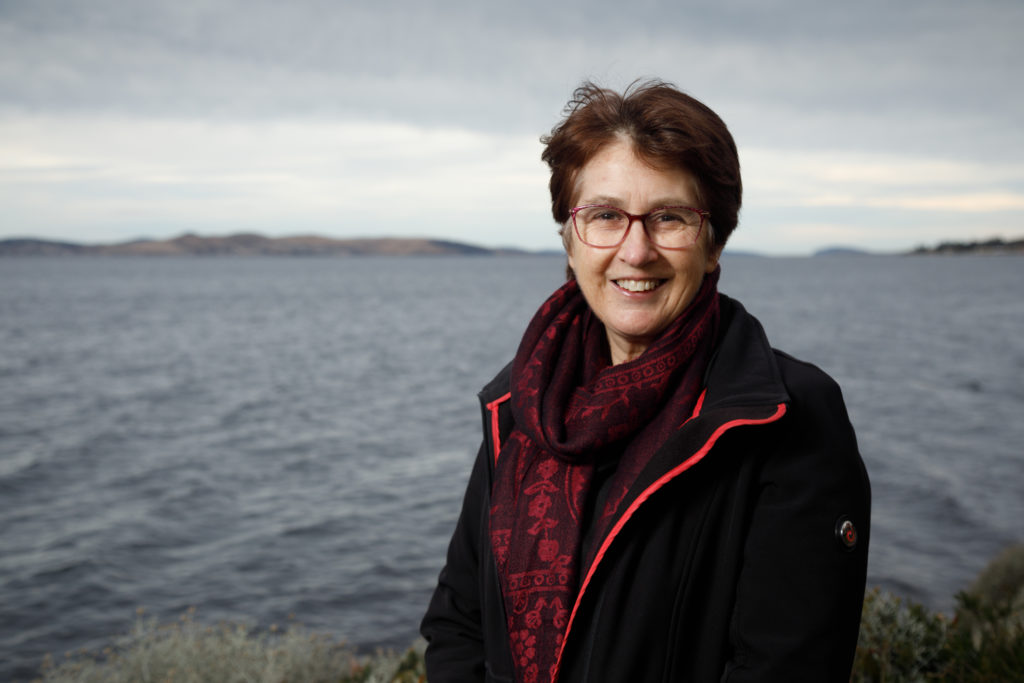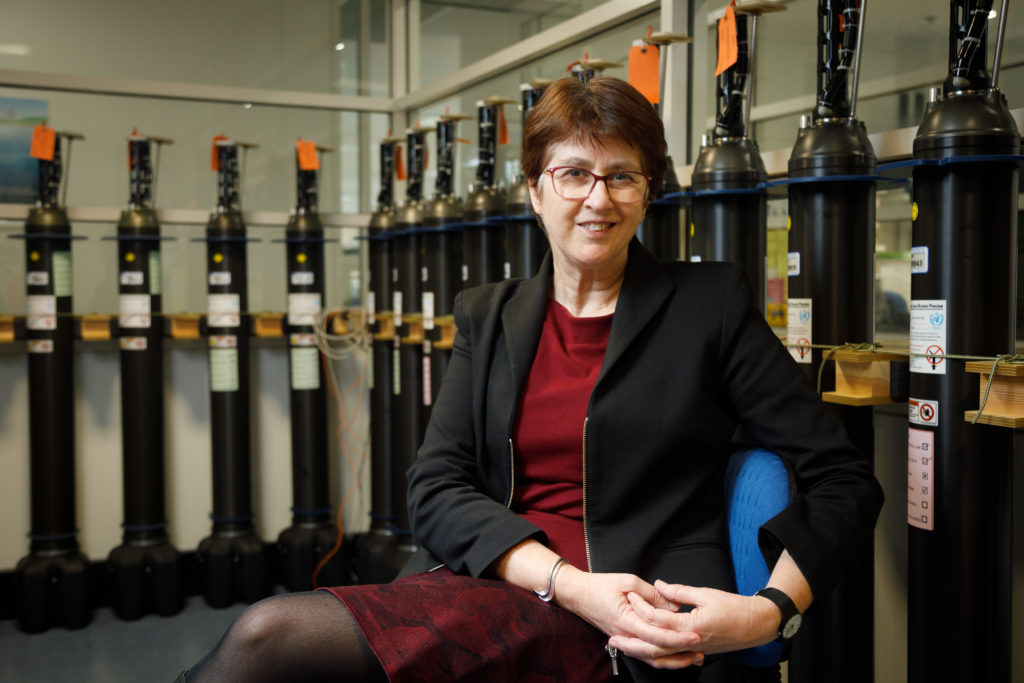
Dr Helen Cleugh – Director, CSIRO Climate Science Centre. Picture by Peter Mathew.
There’s an insatiable demand for climate knowledge right now. Australians are asking questions and wanting information around climate risk and how it is changing. Someone who’s able to answer those questions is atmospheric research scientist Helen Cleugh.
Helen is the Research Director of our Climate Science Centre. Her job is to deliver the research for Australia to manage the challenges and opportunities of a changing and variable climate. And today, that’s not a small task.
In recognition of her abilities, the Australian Academy of Technology and Engineering has named Helen as a fellow.
We take a moment to talk to Helen about her work and the significance of this announcement.
Creating an impact
Helen’s CV has all the hallmarks of a true leader. And now she can add fellow of the Australian Academy of Technology and Engineering to the list.
The academy is recognising Helen for her ability to translate research into sustainable outcomes for Australia’s climate, landscapes and the atmosphere.
“In my mind, the academy is important because it’s all about impact and application of the science. And that’s where my career has always been. This recognition aligns with what I want to achieve in my career – a genuine impact,” Helen said.
Helen currently leads the Climate Science Centre. She stepped into the role in 2017. Although CSIRO had been working on climate science for decades, this was a new frontier. The creation of the Climate Science Centre was an opportunity to bring together several capabilities and research under one program. Helen knew this was an exciting opportunity.
“The nation had spoken. They said Australia needs climate science capability across observations, modelling, and knowledge and information provision. So, I knew we had something of huge value. It was a matter of getting everyone together to continue the research,” Helen said.
Task in hand, then comes impact
They didn’t waste any time. Within the first four months, Helen and her team had developed a strategy for the centre. This strategy focussed on the impact that they could make.
“When we formed the Climate Science Centre it was all about making sure we had the information, data and the knowledge to help Australia and the world navigate the changing climate. The impact was providing the information and knowledge that was needed. But to do that you need credible science,” Helen said.
“We’re working in a contentious area. People are asking a lot of questions and we need credible, world-leading research and, given the global dimension of climate science, this research needs to be collaborative. So one of our key tasks is to build partnerships nationally and globally – to connect the research. We are achieving all these aspects.”
“When you know where you want to be and what you want to achieve, it is very exciting.”

Dr Helen Cleugh – Director, CSIRO Climate Science Centre. Picture by Peter Mathew.
A lasting contribution
Leading the charge for climate science is one part of her ambition. But giving back to her science community also drives Helen. She has been able to make that nexus between the fundamental science and how we make a difference. Taking her atmospheric and climate science through to impact.
“It’s always nice to be recognised for your contribution by your peers. It’s exciting for me to think that I can be a fellow in this community.”
“I’ve worked with incredibly talented scientists and been part of some amazing research. I often seen my contribution as taking this science and using it to address key challenges and questions that exist in environmental science.”
“Another common thread in my career has been building capabilities. From programs to people, I’ve tried to make sure that we build the right capabilities to ensure we met some of the nation’s most pressing challenges.”
Helen was announced as a Fellow of the Australian Academy of Technology and Engineering on Wednesday 23 October 2019.
Helen is one of six CSIRO leaders who have been elected to one of Australia’s learned academies. Dr Douglas Bock, Dr Martin Cole, Dr Andy Sheppard, Dr Surinder Pal Singh and Prof Nicolas Voelcker round out the group.

